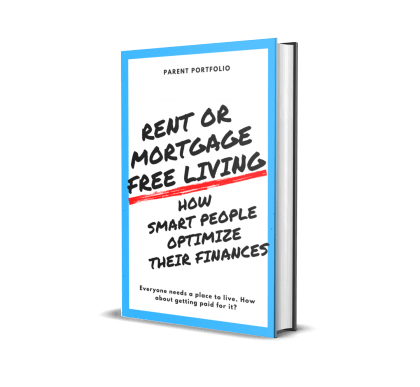Can Real Estate Agents Buy Houses for Themselves | Expert Guide

You should be fine buying your list as long as you follow the instructions carefully. Not only do you want to ensure that your license is unblemished, but you also want to ensure that your reputation is spotless. As long as their real estate broker is on board, many real estate professionals make a lot of money buying their listings. Many real estate brokers profit by assuring their clients that their houses will sell, even if it is only to them. In this guide, we will answer can real estate agents buy houses for themselves?
Acting as your own buyer’s agent and purchasing your listings can assist you in diving deeper into real estate investing and other wealth-building strategies. However, let’s find out how to buy houses this way. So, how do real estate agents buy houses for themselves?
Can Real Estate Agents Buy Houses for Themselves?

The key question is whether the agent must disclose his intent to purchase the property as part of a sale. Many states have adopted a rule requiring disclosure if an agent knows that marketing a house will affect the market value. In those states, since the agent almost always stands to benefit from higher commissions when he acts as a buyer’s agent rather than a listing agent, this makes it difficult for agents to buy properties themselves without disclosing their intentions.
This would certainly be unethical because it prevents other customers from being treated fairly and equally. Still, it may also be against state laws that require disclosure of information relevant to potential buyers’ decisions about purchasing properties.
In most states, however, this is not the case; agents are allowed to buy property.
There are exceptions to this rule if the buyer’s agent represents an undisclosed principal who would like to keep his identity secret (such as a seller). To protect buyers against possible conflicts of interest if they were interested in buying the same property, most state real estate licensing boards have adopted rules requiring disclosure by anyone who knows that there may be a conflict of interest.
This would cover situations where an agent was negotiating with someone he knew who had offered for sale another house that he (the agent) also intended t buy. Since most licensed real estate brokers act as listing or buyer’s representatives rather than both, it is very easy for them to follow the rules closely.
What are the Conflicts
Two types of conflicts can arise in this situation:
- when an agent acts as both buyer and seller’s agent for different parties, who are interested in buying or selling the same property at about the same time;
- When an agent is simultaneously acting as an agent for both buyer and seller in a transaction
It is essential to note that not every state considers these dual agency relationships unethical; several states allow “dual agency” provided correctly with proper disclosure. However, many real estate laws do consider it illegal, even if disclosed.
To avoid ethical dilemmas like these, agents should always ask permission before doing anything that would give them an advantage in a real estate deal.
The other situation where agents can run into ethical issues is when they engage in transactions that could benefit themselves, such as accepting gifts from clients who are also their friends or family members. In these situations, an agent’s duty should always be to his client and not to the person offering the gift.
Accepting gifts from clients might cloud the agent’s judgment and make him more likely to give a friend a break on a property sale. Although this may not necessarily violate any state laws against “gifting,” it certainly violates industry ethics for an agent to accept anything that would diminish his impartiality in negotiating a transaction.
To avoid ethical dilemmas like these, agents should stay out of the position of accepting gifts from clients who are also their friends or family members.
Dual Agency and Real Estate Ethics
Ethics difficulties exist in real estate when you serve as a dual agent, not just when you engage as a buyer. There are a variety of issues that can emerge, including:
- Can you get your seller the best price for their home by acting as a buyer’s agent as well?
- When working with the seller’s property, can you bargain on behalf of a potential buyer?
- Is it possible to put pressure on the seller or the buyer to finish the transaction sooner?
You know you’ll operate ethically as a professional real estate salesperson. However, if the seller believes they might have gotten more for their home, these ethics may be called into doubt.
You don’t have any obligation to sell the house to that specific buyer as a seller’s representative helps alleviate some of these issues. It’s to your best advantage to sell for a higher price if another buyer comes along with a better offer.
Similarly, if you find a better house for your buyer, it is still in your (and their) best interests to sell for a higher price. Furthermore, if you do not represent your clients to the best of your ability, you risk losing your real estate license.
What about customers?
Some customers may prefer to work with an exclusive buyer’s or seller’s representative despite these complexities. Dual agency can only be used with the consent of all parties concerned.
Buying a listing and acting as your own buyer’s agent creates additional issues because you can no longer sell the buyer “any house.” That particular residence has piqued your curiosity. A home seller might be concerned that:
- You’re either lying to them about the state of the real estate market (by claiming that you have other suitable purchasers) or about the worth of your home.
- You’re pushing them through the realty transaction in the hopes of making a good profit.
- Maybe you’re not serious about selling your house since you’re more interested in buying it.
All of these actions could be construed as a breach of fiduciary responsibility.
Why do Some Agents Choose to have their Transactions Handled by a Different Seller?

Insufficient experience
Even if you are a licensed real estate agent, you must admit that you are unfamiliar with some areas. For example, many agents focus on residential deals and have minimal expertise with commercial properties. Even if you plan to acquire a residential unit, you should seek the opinion of a CRE agent if you’re contemplating making a realty investment. You may not be completely knowledgeable about the location you’re searching for.
A real estate agent must be kept up to date on a variety of topics on a regular basis. As a result, we only advocate working with agents who are actual specialists in their fields.
Keep personal attachments separate.
Getting engaged in a real estate deal may be quite emotional for many individuals, particularly if they have a deep relationship with the property. Assume you’ve lived in the same house your whole life. It was the location where you began your family and reared your children.
You spent considerable time there and made many memories there. As a consequence, if a prospective buyer brings out a fault or maintenance needs, you may feel awful. On the other side, if someone is getting a divorce, they may want to sell their home as quickly as possible and start a new life.
Dealing with a new provider might be a smart option if you’re not sure whether your emotional bond will hinder you from making a rational choice.
When a Client Buys your Listing, you must protect them.
As a real estate professional, it is in your best interest to operate ethically while purchasing a client’s listing. If you don’t, you risk losing your driver’s license. Here are some key aspects to consider:
Make sure your client is aware of everything. When purchasing a client’s listing, complete transparency is necessary. Talk to them about your agent’s compensation and how the transaction will change now that you’re buying the listing.
Don’t skimp on the minor details. Even if your clients trust you, you must still put their money in escrow. Have a real estate attorney look over everything and make sure you’ve completed all of the necessary documentation and due diligence.
Make a sincere effort to sell your home. Make sure you have an excellent listing on the Multiple Listing Service, that you’ve advertised it everywhere you can, and that you’ve scheduled as many showings as possible.
Be ready to let go of the property. There is no such thing as a “once in a lifetime” property. You’ve seen other buyers develop tunnel vision, and you don’t want to be the one who does it. Let your client know if you find a better price for them.
Talk to your broker as soon as possible. Your broker may request that you take additional steps to act as a potential buyer or switch to a different selling agent.
Frequently Asked Questions
Can you buy a house from yourself as a realtor?
Many real estate professionals choose to become brokers to be able to negotiate their agreements. After all, you save a lot of money when you are both a buyer or a seller and a real estate broker. You don’t have to pay real estate commissions to yourself; you can offer it to your client as a concession or pick it up yourself.
Can you represent yourself as a real estate agent?
You have the option of representing yourself as a seller during the property transaction. By doing so, you avoid the need for an agent and allow the investor to profit from the sale.
Even if you divide the commission with your brokerage, the money you earn helps minimize transaction fees. It has the potential to lower your purchasing costs while also increasing your sales revenues.
Compared to the average homeowner, investors buy and sell houses more frequently. This results in further charges. Rather than investing money, investors might profit by representing themselves.
Because the investor is the interim agent, the money will not go into another real estate agent’s pocket as a commission.
Is it OK to buy a house without a realtor?
The quick answer is no, and you do not require the services of a real estate agent to purchase a home. You could be hesitant to deal with one because you don’t want to pay the real estate agent’s commission.
You may be hesitant to deal with one because you don’t want to be saddled with real estate agent costs. But in most cases, the commission is paid by the seller, not the buyer.
How do you submit an offer on the house without a realtor?
Because you are avoiding the seller’s agent’s commission. You may be able to negotiate the home price with the listing agent.
Even though the seller pays the commission, the buyer’s agent’s commission is frequently included in the purchase price. However, if there is no buyer’s agent, the seller may allow deducting that cost from the purchase price.
Of course, it takes expertise to negotiate the acquisition of a home. But if the seller lowers the purchase price to reflect the lack of agent costs. You’ll have a smaller mortgage and cheaper monthly payments.
Bottom Line
You don’t need to rely on another agent when you represent yourself. Let’s say you’re trying to buy a home and you’ve hired a buyer’s agent. Then, on the seller’s side, all home viewings, communication, and offer presentations would have to go through your agent first.
Your agent may not be able to act as quickly as you can. They would do all in their power to assist you, but they also have other clients to attend to. As a result, you and your agent will need to work around one other’s schedules and availability.
Furthermore, no one is more anxious than you about the outcome of the real estate deal.






